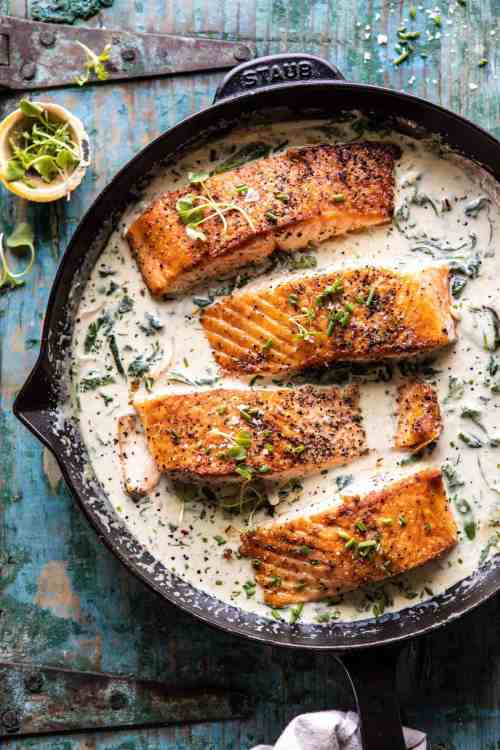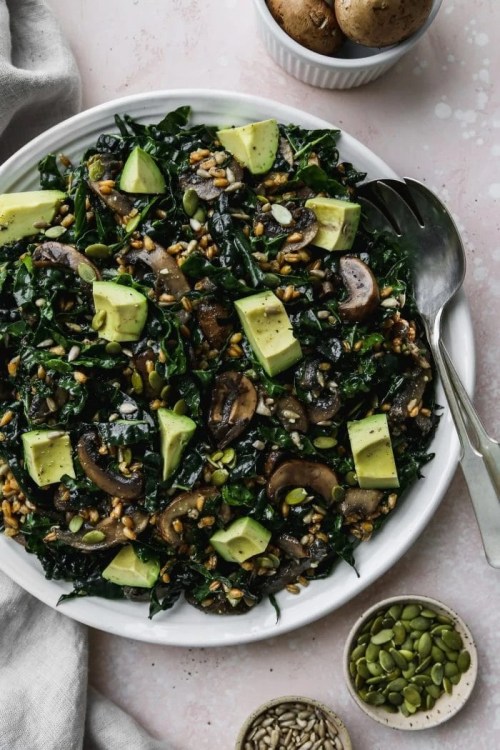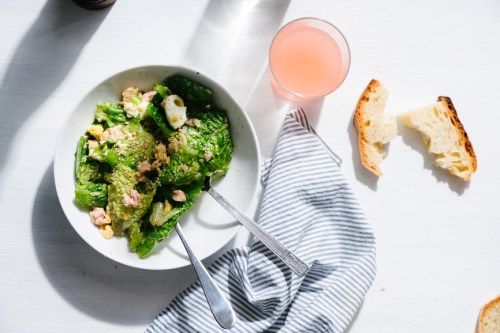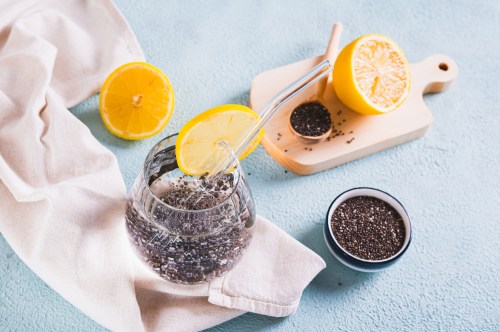It’s no secret that our bodies begin to experience a few changes as we age. And although some of these may be more apparent—like my newly necessary Liquid IV the morning after drinking and pair of reading glasses—others aren’t quite as obvious.
Experts in This Article
co-founder of bistroMD
To that end, let’s talk calcium. According to Caroline Cederquist, MD, a board-certified physician and founder and chief medical officer of BistroMD, getting enough calcium isn’t as simple as downing a bowl of cereal… especially later into adulthood (aka, folks 50 and over). The tricky part? Calcium deficiency—which can lead to chronic conditions like osteoporosis—often occurs gradually over time. And it isn’t as easy to discern or diagnose as, say, declining vision.
But before you start chugging a big glass of milk with breakfast, lunch, and dinner, Dr. Cederquist points out that the most efficient way to absorb calcium is by pairing pairing it with vitamin D, another essential nutrient. Ahead, we explain why the duo go hand in hand and share a few simple recipes so you can start boosting your calcium intake as effectively (and efficiently) as possible.
Why should we consume vitamin D and calcium together for bone health?
According to Dr. Cederquist, vitamin D and calcium are synergistic—so when consumed together, your body’s ability to absorb calcium will be higher. “You can boost how much calcium your body absorbs by pairing those foods with vitamin D, whether it be obtained from the sun, diet, and/or supplementation,” Dr. Cederquist says.
Indeed, as the physician points out, there are many ways to boost vitamin D intake. But if you’re focusing exclusively on diet, there are just a few foods rich in this nutrient to choose from. According to the USDA, some of the best sources of vitamin D include options like salmon (383-570 IU), canned tuna (231 IU), soy milk (119 IU), mushrooms (114-1110 IU), almond milk (107 IU), and orange juice (100 IU), to name a few. For context, the current recommended daily vitamin D intake for children and adults in the U.S. is 600 international units (IU).
On the flip side, the USDA recommends top sources of calcium-rich foods like nonfat yogurt (488 milligrams), kefir (317 milligrams), spinach (245 milligrams), kale (177 milligrams), tofu (434 milligrams), fortified grapefruit juice (350 milligrams), and almond milk (442 milligrams).
That said, since your calcium needs are heavily contingent upon your age, Dr. Cederquist recommends adjusting intake accordingly. As a rough guideline, she suggests kids up to the age of 18 consume about 1,300 milligrams per day and then reduce to 1,000 milligrams per day until folks reach later adulthood. At this point, Dr. Cederquist recommends that women aged 50 and older consume 1,200 milligrams per day due to hormonal changes caused by menopause. And folks aged 70 and older should also increase their calcium intake to about 1,200 milligrams to best support bone health.
Dr. Cederquist recommends that women aged 50 and older consume 1,200 milligrams per day due to hormonal changes caused by menopause. And folks aged 70 and older should also increase their calcium intake to about 1,200 milligrams to best support bone health.
Similarly, vitamin D needs will also change based on age. The daily amount of vitamin D, according to the National Institute of Health’s Office of Dietary Supplements (ODS), is 400 IU for children up to age 12 months, 600 IU for people ages 1-70 years, and 800 IU for people over 70 years.
3 recipes that pair vitamin D and calcium for increased absorption

1. Creamed Spinach and Salmon
Consider your dinner plans made thanks to this garlic butter, creamed spinach, and salmon recipe by Half Baked Harvest. It marries together a few of the top vitamin D and calcium-rich foods on the list, including perfectly pan-seared salmon (which is rich in both nutrients), served along with creamy spinach doused with parmesan, shallots, and plenty of garlic. Need I say more?
Get the recipe: Garlic Butter Creamed Spinach Salmon

2. Vegan Warm Mushroom Salad With Miso Dressing
We believe that not all delicious salads are meant to be served cold. Case in point: This tasty vegan warm mushroom salad with miso dressing by Walder Wellness that tastes even better hot than it does cold. And aside from how delicious it is, it also checks off the list of our dynamic duo nutrients—vitamin D and calcium.
Namely, you can thank the kale (calcium-rich) and mushrooms (vitamin D) that are the stars of this simple recipe. And rest assured that this salad doesn’t skimp out in the flavor department either. (One look at the ingredient list of the miso-sesame dressing—which features sesame oil, miso paste, and ground ginger—and you’ll understand exactly why.)
Get the recipe: Warm Mushroom Salad With Miso Dressing (Vegan)

3. Sunshine Orange Smoothie
This sunshine orange smoothie by Love and Lemons packs a one-two punch: It’s said to brighten up your morning and boost your immune system with nutrient-rich ingredients like goji berries, bananas, and ginger. When blended together, they form a sunshine-orange hue that’s an instant mood booster. Of course, we can’t forget that this drink features one of our favorite vitamin D and calcium combinations: orange juice + almond milk. Pro tip: You’ll want to ensure that you use fortified OJ to reap its calcium/vitamin D benefits. Easy enough, right?
Get the recipe: Superfood Sunshine Orange Smoothie
Get the inside scoop about supplements for women, according to an RD:
Sign Up for Our Daily Newsletter
Get all the latest in wellness, trends, food, fitness, beauty, and more delivered right to your inbox.
Got it, you've been added to our email list.










